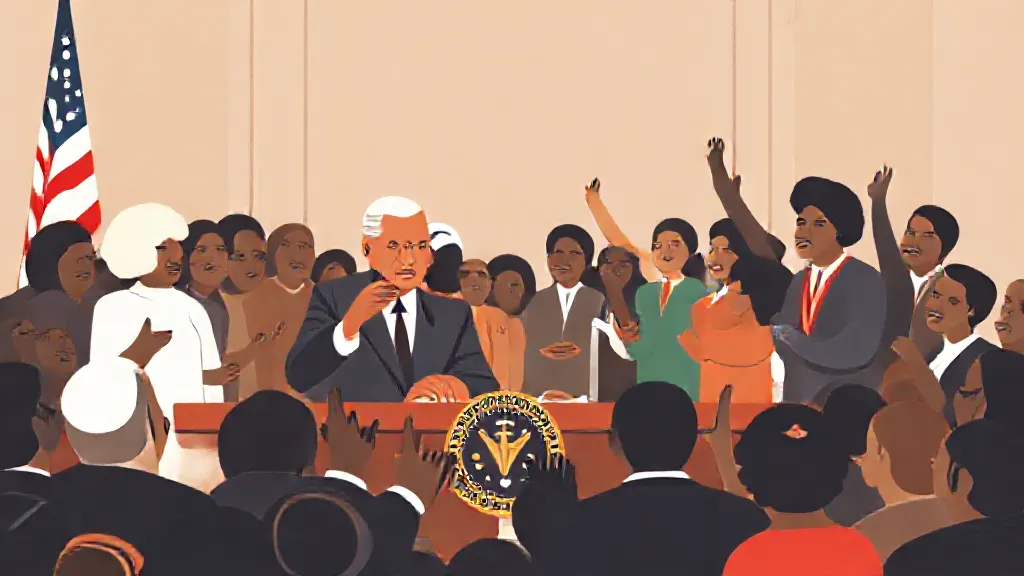The Voting Rights Act of 1965 stands as a monumental piece of legislation in American history, addressing the systemic disenfranchisement of African American voters, particularly in the Southern states. This act was a culmination of decades of civil rights activism, and its passage marked a pivotal moment in the struggle for racial equality in the United States. Understanding the historical context, the key provisions of the act, and its lasting impact is essential to grasp why this legislation is considered historic.
Historical Context of Disenfranchisement
Before the Voting Rights Act, various discriminatory practices such as literacy tests, poll taxes, and outright intimidation had been employed to suppress African American voter registration and participation. The Civil Rights Movement, which gained momentum in the 1950s and 1960s, highlighted these injustices. Events like the 1963 March on Washington and the Selma to Montgomery marches in 1965 brought national attention to the struggle for voting rights.
The brutal response to peaceful protests, particularly the violence witnessed on "Bloody Sunday" in Selma, galvanized public opinion and pressured lawmakers to take action.
Key Provisions of the Act
The Voting Rights Act of 1965 aimed to eliminate barriers to voting for African Americans. One of its most significant provisions was the prohibition of literacy tests and other discriminatory practices that had been used to disenfranchise voters.
Additionally, the act provided for federal oversight of voter registration in areas where discrimination was prevalent. This meant that federal officials were empowered to monitor and, if necessary, intervene in local elections to ensure fair practices. The act also aimed to increase voter registration among African Americans, leading to a dramatic rise in registered black voters in the years following its passage.
Immediate Effects on Voter Registration
In the immediate aftermath of the Voting Rights Act, there was a significant increase in African American voter registration. For example, in Mississippi, the percentage of registered black voters jumped from 6.7% in 1964 to over 59% by 1967.
This surge in voter registration not only shifted the political landscape in the South but also empowered African Americans to have a voice in local, state, and national elections. The act laid the groundwork for increased political representation and the election of African American officials in previously hostile territories.
Judicial and Legislative Challenges
Despite its initial success, the Voting Rights Act faced numerous challenges in the following decades.
Various states employed tactics to undermine the act, leading to a series of legal battles. In 2013, the Supreme Court's decision in Shelby County v. Holder invalidated key provisions of the act, effectively nullifying the federal oversight mechanism.
This ruling raised concerns about the resurgence of voter suppression tactics and led to renewed debates about the state of voting rights in America, highlighting the ongoing relevance of the act.
Cultural Impact and Legacy
The Voting Rights Act of 1965 not only transformed the political landscape but also had a profound cultural impact. It inspired subsequent generations of activists and laid the foundation for future civil rights legislation.
The act is often cited as a critical turning point in American history, illustrating the power of grassroots movements to effect change. Its legacy is evident in ongoing discussions about voting rights, racial equality, and the importance of civic engagement in a democratic society.
Contemporary Relevance of Voting Rights
Today, the principles enshrined in the Voting Rights Act continue to resonate amid ongoing debates about voter ID laws, gerrymandering, and access to polling places.
Advocacy groups emphasize the need to protect the rights of all voters, particularly marginalized communities. The act serves as a reminder of the fragility of democracy and the vigilance required to safeguard voting rights for future generations.
Conclusion: A Historic Milestone
In conclusion, the Voting Rights Act of 1965 is historic not only for its immediate effects on voter registration and participation but also for its enduring legacy in the fight for civil rights and social justice.
It represents a significant victory in the ongoing struggle for equality and serves as a reminder of the importance of active citizenship. Understanding this landmark legislation is crucial for appreciating the complexities of voting rights in America today.
